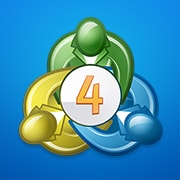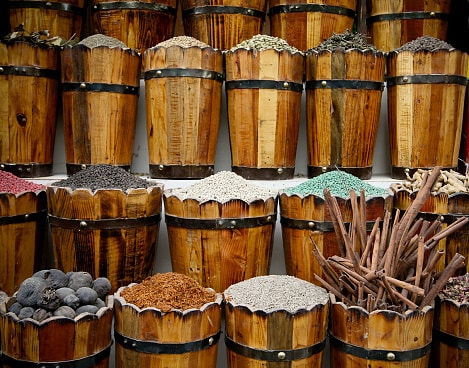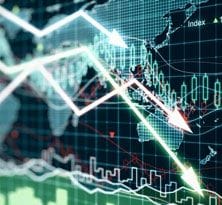A commodity is a physical good that can be bought or sold on the commodity market. Commodities can be categorised into either hard or soft varieties. Hard commodities are natural resources like oil, gold and rubber and are often mined or extracted. Soft commodities are agricultural products such as coffee, wheat or corn.
The most widely traded examples of commodities have well-established markets, with around 50 major commodity exchanges globally. Crude oil is the most widely traded commodity in the world: read more about it in our introduction to the oil market here.
The debate of commodity vs product relates to the beginning and end of the production process. A commodity is a raw material that is used in the manufacturing of commercial goods, and the product refers to the physical goods as a result.

How does commodity trading work?
Investors buy and sell commodities through either futures contracts on an exchange, or forward contracts over-the-counter. This effectively means that prices are agreed upon months in advance, and these exchanges standardise the quantity and minimum quality of the commodity. For example, the London Commodity Exchange might stipulate that 5,000 bushels comprise one wheat contract. It would also state which grades of wheat could be used to satisfy the contract. All wheat that meets that grade and criteria will be sold for the same price, regardless of where it was grown, and any slight variations in quality.
In the physical commodities market, there will be an actual exchange of goods. A breakfast cereal producer might also buy a futures contract for corn with a delivery date months in the future. This way, buying under a futures contract will protect the buyer if the future market price of corn is higher than the agreed price. The certainty that the transaction will take place allows both parties to plan and budget confidently.
Most commodity traders, however, do not take physical ownership of the goods. Commodity speculators or traders take a financial position (long or short) on a commodity. Commodities can as contracts for difference (CFDs) can be done using an online trading platform
What are the most popular commodities?
Some of the most popular commodities include crude oil, natural gas, gold and silver. Other commonly traded commodities include heating oil, sugar, corn, coffee, wheat and soybean.
The most actively traded commodities will differ depending on how the markets are performing. For instance, a highly volatile petroleum market may attract more price speculators. This increases both volume and open interest.
- Volume relates to the total number of contracts that are being traded.
- Open interest is the total number of open long and short positions in a market.
So, what is the most valuable commodity? Commodities with high volume are often the most popular ones to trade. Low volume commodity markets can be prone to higher volatility or even wild price swings. The topic of 'most valuable commodity' depends on many factors: the political, social and economic stability of a region and external factors such as weather conditions and natural disasters that can ruin agricultural commodity production, for example.
What is the commodity value?
News trading involves following and responding to current social, political, and economic changes. This can be beneficial to both short and long-term traders.
For example, if a report was published stating that demand for gold has hit a ten-year low, many traders would look to sell gold over fears that its value is likely to decrease. A sudden rise in the number of people selling gold could have an impact on your trades, as it would push gold prices lower and the value of gold would increase.
Discover several viewpoints as to whether gold is a good investment right now.
High impact news bulletins can have an impact on the commodities market and the value of certain commodities. By understanding how to take advantage of these events, you may be able to increase your profitability.
Commodity price trends
Most commodity traders incorporate technical analysis into their trading plan. Technical analysis involves utilising previous price movement data to estimate future price movements.
Those traders just starting out would benefit from learning how to read charts. A basic understanding of charts could help you anticipate a potential market move. A starting point would be to look at the price chart of a market you are interested in trading.
Trading the trend is one of the golden rules of trading. For instance, basic technical analysis suggests that the ideal time to buy an up-trending commodity is when it is breaking out to new highs. However, technical analysis does not guarantee results of course.
Many commodity traders take news releases and economic events into account in order to build an event-driven trading strategy. They will constantly monitor and analyse the factors that are likely to affect the relevant commodities market, hoping to benefit from any changes in price movements.
Alternatives to commodity trading
There are a number of potential alternatives to commodity trading.
- Forex (or currency trading) is the world’s most traded market, and is built around buying one currency in exchange for another. Economic and political factors play a part here, making it an exciting market to trade. The forex market has no physical location, and is open to trade 24 hours a day from Sunday night to Friday night.
- You can also trade on indices like the ASX 200, UK 100, Germany 40, and US 30. Indices gauge the value of a section of the stock market, and are calculated from the combined prices of selected stocks.
- Another alternative is to trade on shares, popular stocks include Apple, BP and Lloyds Banking Group.
- The treasuries market can also be traded. Examples of treasuries include government debt instruments such as gilts, government bonds, and treasury notes.
It is generally recommended that you diversify your portfolio. Avoid putting all your eggs in one basket - or a single trade. Does a market have sufficient liquidity and interest? Do some research before taking the plunge and trading or investing in a particular market. Successful traders tend to follow a strict trading discipline. Research, a solid trading strategy and sound money and risk management skills are key.
Commodity demo account
You can trade commodities through a commodity broker by setting up an online account. Futures contracts provide the most direct way to invest, as these set an obligation to buy or sell a commodity at a fixed price and date. Buying into a commodity futures contract lets investors lock in quantity and price, thus minimising volatility.
Commodities are also available to trade as CFDs. With CFD trading, you don’t take ownership of the underlying asset. Instead, you speculate on whether the price of the commodity you are trading will go up or down, and open a position accordingly. CFDs are leveraged products, which gives you a greater amount of exposure to the market. Thus, while it is possible to maximise profits via a larger deposit, losses will also be magnified.
Compare our award-winning Next Generation platform features to MetaTrader 4: choose the best trading platform for you and tailor it for your individual trading needs: Next Generation vs MetaTrader 4
Disclaimer
CMC Markets Canada Inc. is a member of the Canadian Investment Regulatory Organization (CIRO) and member of the Canadian Investor Protection Fund (CIPF). CFDs are distributed in Canada by CMC Markets Canada Inc. dealer and agent of CMC Markets UK plc. Trading CFDs involve a high degree of risk and investors should be prepared for the risk of losing their entire investment and further amounts. CFD trading is available in jurisdictions in which CMC Markets is registered or exempt from registration, and, in the province of Alberta is available to Accredited Investors only. CMC Markets is an execution only dealer and does not provide investment advice or recommendations regarding the purchase or sale of any CFD. For full details of our fees please refer to our rates schedule. CMC Markets is remunerated through the spread which is the difference between the bid and ask price. Commission and holding costs may also apply.
Apple, iPad, and iPhone are trademarks of Apple Inc., registered in the U.S. and other countries. App Store is a service mark of Apple Inc. Android is a trademark of Google Inc.
This website uses cookies to obtain information about your general internet usage. Removal of cookies may affect the operation of certain parts of this website. For more information about cookies and how to remove them, please read our cookie policy.



